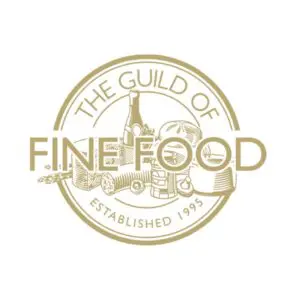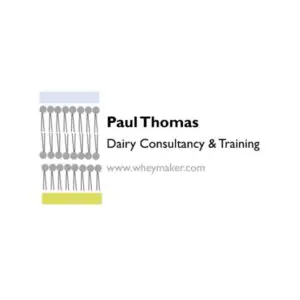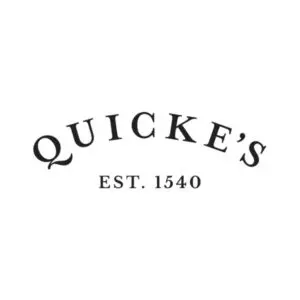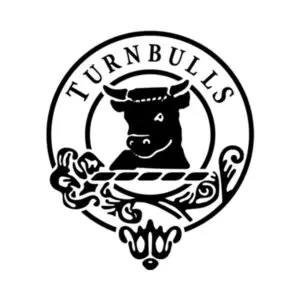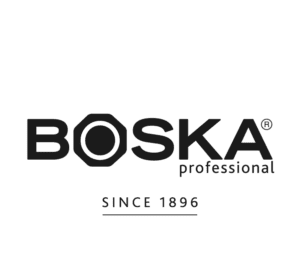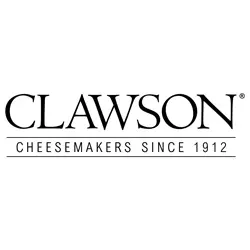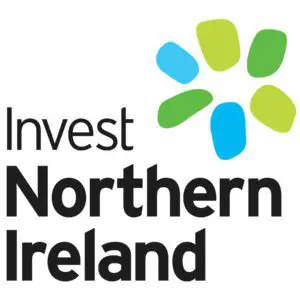Cheesemongers are the unsung heroes of the culinary world, with their deep knowledge and passion for all things cheese. These dedicated individuals are the ones who bring us the myriad of flavours, textures, and aromas that make up the wonderful world of cheese. Do you have a love for cheese and a desire to embark on a flavourful adventure? In that case, becoming a cheesemonger might be the perfect fit for you. In this blog post, we will explore the steps and skills required to become a cheesemonger, so grab a wedge of your favourite cheese and let’s dive in!

What is the role of a cheesemonger?
So, what exactly is a cheesemonger, you ask? Well, imagine a cheese lover with a comprehensive knowledge of cheese varieties, origins, and flavours. Throw in a passion for curds; you’ve got the quintessential cheesemonger! These dedicated individuals are not just salespeople but trusted guides who help customers navigate the vast and sometimes overwhelming world of cheese.
Cheesemongers? Actually they’re cheese whisperers!
Ever walked into a cheese shop and felt utterly lost amidst the sea of wheels, wedges, and bricks? Fear not; cheesemongers are here to save the day! They have an uncanny ability to engage with customers, understand their preferences, and offer personalised recommendations, ‘what’s great today’ depending on the cheese conditions and when you want to eat it, or cheese board selections and quantities depending on how many people you are entertaining. They can match your taste preferences with the perfect cheese by asking a few simple questions, ensuring a delightful culinary experience.
Cheesemongers are the gatekeepers to a world of cheese secrets.
But their expertise goes beyond mere recommendations; cheesemongers can provide a wealth of knowledge about each cheese, its history, and the artisans who crafted it. They can share insights into the cheesemaking process and the specific ageing techniques and even recommend ideal storage conditions. In short, they are the gatekeepers to a world of cheese secrets, enriching our cheese-loving lives with every interaction.
Cheesemongers bridge the gap between producers and consumers.
Cheesemongers play a vital role in bridging the gap between producers and consumers. They are passionate advocates for small-scale cheese artisans, often selecting unique and hard-to-find cheeses created by local farmers and artisans. By supporting these artisans, cheesemongers help preserve traditional cheesemaking methods and contribute to the sustainability of the cheese industry.
How do you become a cheesemonger?
The Five Steps to Becoming a Cheesemonger.
- Develop a cheese passion.
- Gain knowledge and expertise.
- Get hands-on experience
- Go for certifications and training.
- Develop your palate
Step 1: Develop a Cheese Passion
To become a successful cheesemonger, you must start with a genuine love for cheese. Begin by exploring different types of cheese, from creamy Brie to tangy Gorgonzola. Attend cheese tastings or visit local shops to expand your palate and deepen your understanding of different cheese varieties. Discover the stories behind each cheese, their regions, and the craftsmanship involved in their production. By immersing yourself in the wonderful world of cheese, you’ll develop a genuine passion that can drive your journey as a cheesemonger.
Cheese Flavour Wheel
Download the Academy of Cheese Structured Approach to Flavour Wheel, helping you effectively describe the cheese you are tasting.
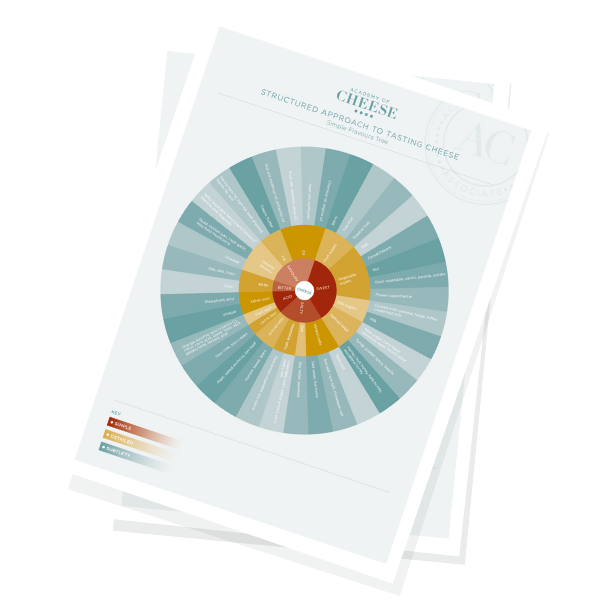
Step 2: Gain Knowledge and Expertise
Knowledge is the key to becoming a cheesemonger. Educate yourself about cheese styles, production methods, and ageing techniques. Books, online courses, and workshops can provide you with a solid foundation in cheese appreciation. Seek mentorship opportunities with experienced cheesemongers who can guide you in developing your palate and honing your skills.
Step 3: Hands-on Experience
While theoretical knowledge is valuable, hands-on experience is equally crucial. Look for opportunities to work or intern at a cheese shop, farmer’s market, or speciality food store. These environments will expose you to the day-to-day operations of a cheesemonger, such as cheese handling, cutting, and customer service. Embrace the chance to interact with customers, answer their questions, and recommend cheeses based on their preferences.
Advice from Cheesemongers
Confidence to open a cheese shop
Work in a local farm shop
Cheese is now a huge part of my day to day life thanks to the academy.
Step 4: Certifications and Training
Obtaining certifications, such as those offered by the Academy of Cheese or the Guild of Fine Food, can significantly enhance your credibility as a cheesemonger. These certifications often require written and practical exams, ensuring your knowledge and expertise are up to par. Additionally, some organisations offer specialised training programs focusing on specific cheese aspects, such as cheese pairing or cheese ageing.
Step 5: Develop Your Palate
A cheesemonger’s ability to discern flavours and textures is essential. Train your taste buds by regularly tasting a wide variety of cheeses. Please pay attention to the characteristics of each cheese, such as its aroma, taste, and mouthfeel. Practice describing these qualities, as it will help you effectively recommend cheeses and educate customers. Remember, a cheesemonger is not just a cheese seller but also an educator and advocate for the art of cheese.
Looking to work as a cheesemonger?
Here’s how Annie Meakin, London Manager of Paxton & Whitfield got started
Working in Cheese – The Cheesemonger
A Cheesemongers job description
Here is a sample job description for a cheesemonger:
Job Title: Cheesemonger
Organisation: Academy of Cheese
Department: Cheese
Reports To: Store Manager
Salary: £28,590
Summary:
The Cheesemonger is responsible for the selection, curation, and presentation of cheeses in the cheese department. They will also be responsible for providing customer service and education on the different types of cheese available.
Essential Duties and Responsibilities:
- Select and order cheeses that meet the needs of the store and its customers.
- Receive and inspect cheeses upon delivery.
- Store cheeses properly to maintain quality.
- Cut and wrap cheeses for customers.
- Answer customer questions about cheeses.
- Provide cheese tastings and demonstrations.
- Maintain cleanliness and organization of the cheese department.
- Comply with all food safety regulations.
Qualifications:
- Passion for cheese and a desire to learn more about it.
- Strong knowledge of cheese varieties and production methods.
- The ability to taste and describe cheese.
- Excellent customer service skills.
- The ability to work well under pressure.
- The ability to follow food safety procedures.
Physical Demands:
- The ability to lift and carry up to 50 pounds.
- The ability to stand for long periods of time.
- The ability to work in a cold environment.
OK, as we’ve said, a large part of being a cheesemonger is to provide customers with expert knowledge and guidance on various types of cheese, helping them select the best options to suit their tastes and preferences. But there’s more to the job than that. A cheesemongers job description would typically include the following:
1: Cheese Selection
A cheesemonger is responsible for curating diverse and high-quality cheeses. They stay informed about different types of cheese, their origins, production methods, and flavour profiles. This knowledge enables them to offer a wide range of options to customers.
2: Customer Service
Cheesemongers engage with customers, answer their questions, and provide recommendations based on their preferences. They offer samples and taste tests to help customers make informed choices. They are knowledgeable about pairing cheeses with other foods, such as wine, bread, fruits, and charcuterie.
3: Product Knowledge
Cheesemongers have a deep understanding of cheese varieties, including their ingredients, production processes, ageing techniques, and unique characteristics. They can provide detailed information about each cheese’s flavour, texture, and aroma and explain the differences between various types.
4: Cheese Handling and Care
Cheesemongers ensure that the cheeses are stored and displayed correctly to maintain quality. They monitor temperature and humidity levels to prevent spoilage and take necessary precautions to avoid cross-contamination. They may also handle the cutting, wrapping, and packaging of cheese for customers.
5: Education and Events
Cheesemongers often conduct educational sessions, workshops, or tastings to share their knowledge with customers or the general public (including some of our training partners). They may participate in cheese-related events, collaborate with local producers, and contribute to the cheese community.
6: Inventory Management
Cheesemongers monitor inventory levels, track stock rotation, and place orders to replenish supplies. They ensure the cheese selection is well-stocked, fresh, and properly labelled with relevant information such as origin, ageing, and pricing.
7: Cleaning and Maintenance
Cheesemongers maintain a clean and organised work environment, including the cheese counter, storage areas, and cutting equipment. They follow proper hygiene and safety procedures to prevent contamination and maintain food safety standards.
8: Continuous Learning
Cheesemongers stay updated on industry trends, new cheese releases, and advancements in cheese production. They attend workshops, seminars, and training sessions to enhance their knowledge and expertise.
Conclusion:
Becoming a cheesemonger is a journey that requires both passion and dedication. By immersing yourself in the world of cheese, gaining knowledge and hands-on experience, and continuously developing your palate, you can embark on a career that celebrates the art and joy of cheese. Whether you dream of owning your own cheese shop or simply want to share your love for cheese with others, the path to becoming a cheesemonger is as flavourful as the cheeses you will encounter. So, grab that cheese knife and start your delicious adventure today!
Frequently Asked Questions for future Cheesemongers
Yes, you can become a cheesemonger. There is no formal education requirement to become a cheesemonger, but it is helpful to have a strong foundational understanding of cheese and the language of cheese, our Level One cheese course is perfect for building your cheese knowledge. Other complementary learning in food science, culinary arts, or hospitality management, would also benefit. You can also gain experience by working or interning at a cheese shop.
No, you do not need a degree to be a cheesemonger, you can become a cheesemonger by gaining hands-on experience and gaining cheese certifications to enhance your credibility as a cheesemonger. The Academy of Cheese certifications provide you with the knowledge and skills you need to understand the cheesemaking process, the different types of cheese, and how to properly store and serve cheese.
The time it takes to become a cheesemonger depends on a number of factors, including your prior experience, your level of education, and the amount of training you receive. The most important factor in becoming a cheesemonger is your passion for cheese. If you are passionate about cheese and are willing to learn, you can become a cheesemonger in a relatively short amount of time. The Academy of Cheese Level One self study course can take up to 12-24 hours of home study (including cheese tasting!).
The word “cheesemonger” is one word. The word “monger” comes from the Old English word “mang”, which means “to deal in”. The term traces to a Latin noun meaning “trader”. So, a cheesemonger is someone who deals in cheese
The salary prospects for cheesemongers vary depending on their experience, location, and the type of establishment they work for. The average salary for an experienced cheesemonger is £28,590 in the United Kingdom or in the United States it’s $34,000 per year.
The career opportunities for cheesemongers are growing as the demand for cheese increases. Cheesemongers can work in a variety of settings, including supermarkets, speciality food stores, restaurants, and cheese shops. They can also work as consultants or educators.
The challenges of being a cheesemonger include:
- The long hours
- The physical demands of the job
- The need to stay up-to-date on the latest trends in cheese
To stay up-to-date on the latest trends in cheese, cheesemongers can attend cheese courses, workshops, and trade shows. They can also read industry publications and blogs. Subscribe to our newsletter so you never miss out on a cheese opportunity for growth.
Cheesemonger jobs can be found online or through job boards. Cheesemongers can also network with other cheesemongers and industry professionals. We recommend joining our Cheese Lovers facebook group to get your networking started.
Do you work as a cheesemonger? Add your advice for those just starting out in the comments below?
Topic: Working in cheese









